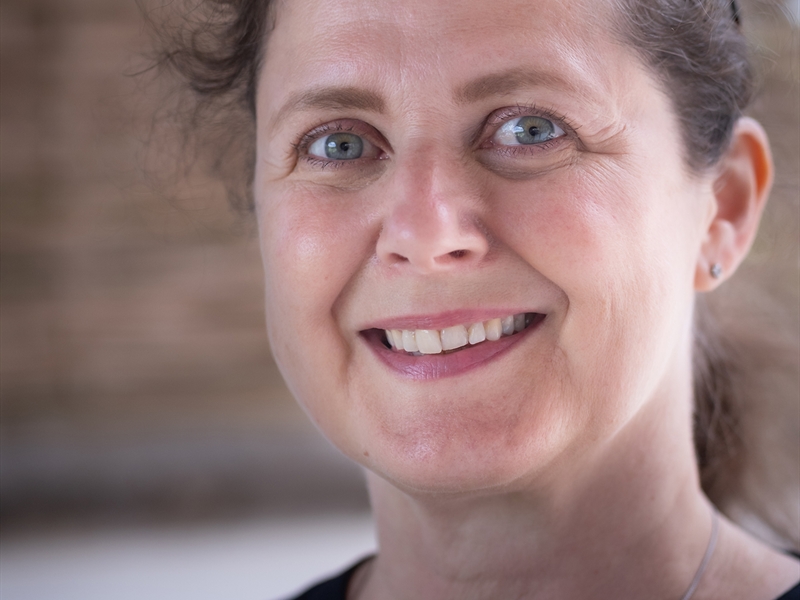Last week the NIHR Leicester Biomedical Research Centre highlighted the SCAD research being done in Leicester by Dr Adlam and his team.
The week started off with Dr Adlam talking about what SCAD is, who is affected and why it’s different to atherosclerotic heart disease. He said that until a few years ago SCAD wasn’t well-understood, but through the research team’s efforts and by working with the patient group and Beat SCAD, a lot of progress has been made.
Trustee Sarah Coombes talked about her SCAD experience and why the research is so important for patients. After her SCAD she was discharged with a bag of pills and was told there was no medical protocol for SCAD, so she was being treated under the protocol for atherosclerotic heart disease, which she didn’t have.
Sarah (pictured ) was among the first 100 patients who took part in the SCAD research, providing blood and tissue samples and having scans. She discovered that day that she also had fibromuscular dysplasia (FMD).
For the first time, Sarah felt heard and understood and came away from the research day feeling empowered. The research done by Dr Adlam’s team is crucial, she says, because too many SCAD patients still struggle to be believed, being told they have indigestion or anxiety, rather than a heart condition. It’s only through research that we will achieve guidelines for treating SCAD patients.
Trustee Rebecca Breslin talked about how the research began. In 2012 when she had her SCAD, aged 34, she was being treated by Dr Adlam, who, she discovered, had written a paper about SCAD. During her follow-up appointment, she asked Dr Adlam why there was no UK research to find out what causes SCAD and he said there weren’t enough patients to study – but Rebecca told him she knew of about 35 patients in the UK. This opened the doors for a research project to begin.
Rebecca also explained what participants can expect when they sign up for the research and how their help and the data the research team collect can feed into papers and the publication of new information about SCAD and ultimately improve diagnosis and treatment of SCAD.
Two-time SCAD patient Joan Errington explained what Dr Alice Wood’s research into recurrent SCADs meant to her. “I was only too happy to be included in SCAD research as a ‘recurrent’ SCAD patient,” said Joan.
“I am probably not a typical patient as I was 67 when I had my first SCAD in 2016 and 68 when I had the second. I took oestrogen-only HRT for 13 years but had stopped in 2009. I do not have FMD. I have wondered if there was a possible genetic cause for my SCADs.
“Although I had been referred to Leicester through my GP at my request, and Dr Alice Wood had arranged for me to have follow-up tests at my local hospital, I had practically no ongoing support from the various cardiologists I’d seen, so I was very happy to take part in the research programme – not just for the ‘greater good’ but also for myself!
“I’d like to think that recognition of SCAD and the use of follow-up tests has improved in the six or so years since my two events, but I can see there are still inconsistencies with diagnosis, initial treatment and long-term management.
“More research can only lead to better awareness of this condition and better outcomes for all SCAD patients.”
To finish the week off, Dr Adlam discussed some of the findings from the research so far, including the first common genetic risk variant, as well as rarer genes that might be linked to SCAD.
Thanks to everyone at the NIHR Leicester Biomedical Research Centre who put this together and to Sarah, Rebecca and Joan for sharing their stories.

